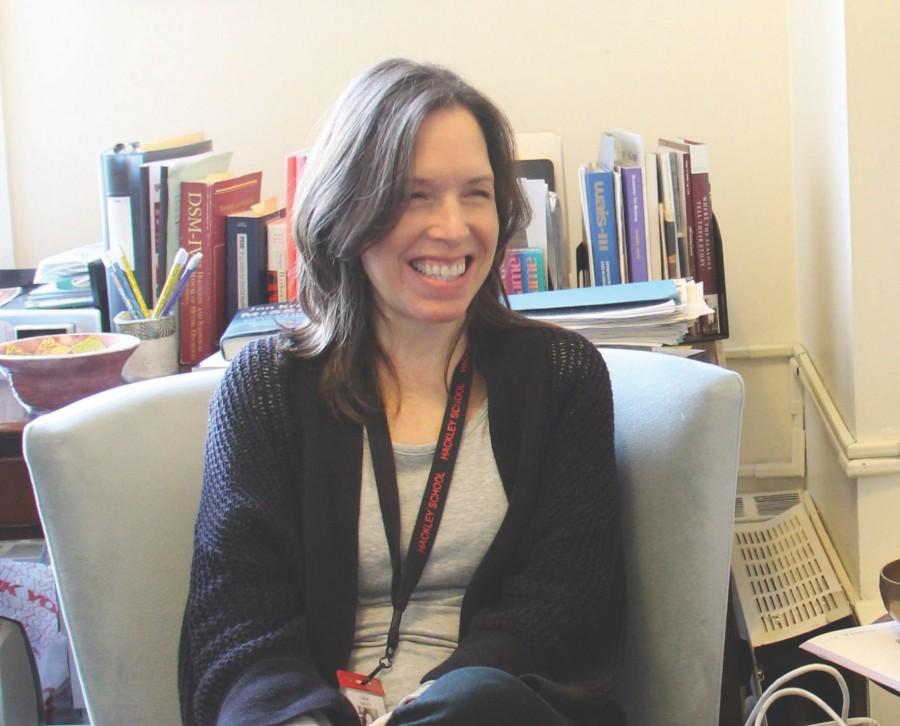De-stress with Dr. Sadler
Credit: Robert Hallock
Dr. Sadler discusses testing strategies while advising a proactive student. She sits in her office, which is located near the alumni offices. Easily accessible, Dr. Sadler’s office is a great place to go for advice and direction for all facets of student life; she has increased focus on her role with the academic aspects of student life this year.
February 16, 2016
Q: What sort of tips could you give to underclassmen on how to succeed during exams by creating a stress-free environment?
A: Planning ahead and staying organized are two ways to avoid stressing out. Give yourself plenty of time. Plan out your study time on a calendar, so you can visualize when you will study for each subject. Plan some time for breaks and ways to treat yourself after study sessions. Planning breaks will help to prevent procrastination (which can create a lot of stress!). For example, plan on watching a movie after you have covered a certain amount of material for history. Knowing that you have a treat coming to you may help to keep you motivated and on task. Be sure you get plenty of sleep, eat well and exercise. Staying up late or cramming all day can create stress. Drink plenty of water when you study, eat healthy snacks and regular meals. Plan to do some exercise during your breaks. Go for a walk or a run, dance around your room, shoot some hoops.
Q: What kind of study strategies would you recommend for students throughout the Upper School?
A: For every student throughout the Upper School, I recommend starting with organizing all of your stuff. Start early (the first weekend in February) and start organizing. Check that you have every handout and reading packet. Be sure you have every quiz and test from every unit you covered in each class. This will give you enough time to get anything you are missing. Make a master list for each class of every unit you need to review, and cross off as you go. After you are done organizing, begin redoing every quiz and test for each class. Focus on the material you are most unsure about. Make a list of questions and mark the test problems you need to review. Be sure to ask questions about these problems during review days or meet with your teacher to go over them. Review the notes from each unit as you go through the tests and quizzes. If you find gaps in your notes, ask your teacher for the missing information or check a classmate’s notes. Make lists of terms, equations, formulas that you will need to review and memorize. Make flashcards for vocabulary. These ideas are the main strategies I recommend, but there are still more!
Q: Are there times when you are available to allow students to seek help and assistance before and during exams?
A: Yes! I am always available to students to help figure out ways to lower stress, stay organized, plan their time, or study more effectively. Stop by anytime or email me to set up a time to meet. If students are interested, we can have group sessions to organize their study materials, or talk about ways to manage time or lower stress. I love to help!

